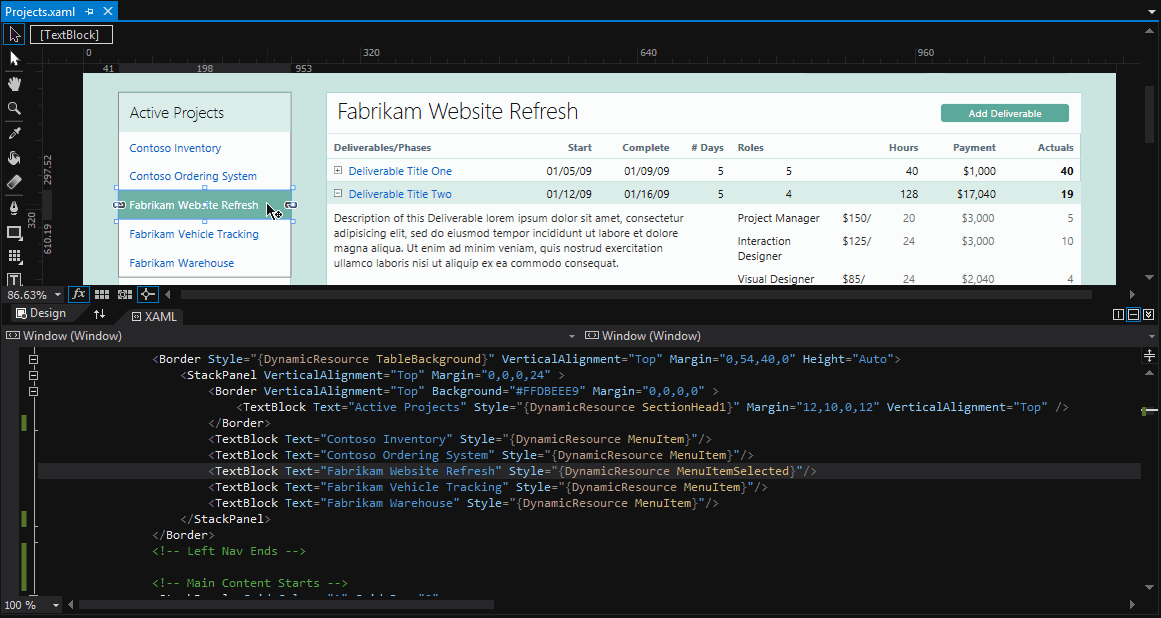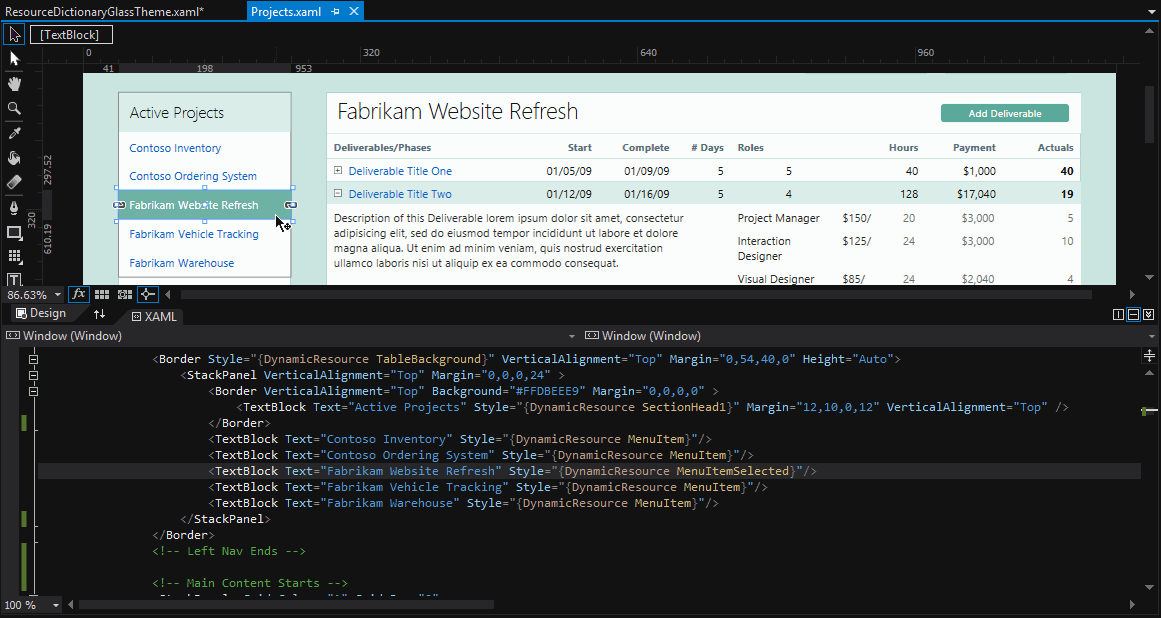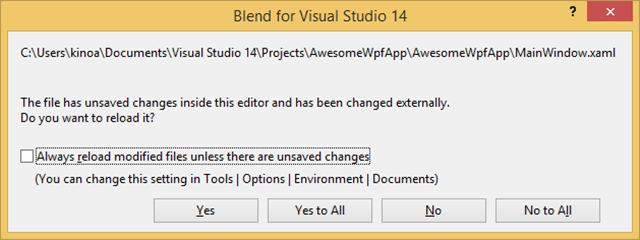Yesterday we released a preview of Visual Studio 2015, and as part of that we are introducing a new Blend experience.
We redesigned Blend for Visual Studio 2015 to provide you with a great user interface development experience for creating beautiful XAML apps. Blend has a sleek new look consistent with Visual Studio for improved workflow between the two products. We leveraged Visual Studio technologies to provide you with a better solution explorer and source control support in Blend. In addition, XAML IntelliSense and basic debugging capabilities are also now available.
Some highlights of this new release include:
-
Consistent user interface with Visual Studio: You can design your applications within the familiar context of the Visual Studio user interface, which makes switching to and from Visual Studio a more pleasant and productive experience. Blend also includes an exclusive new Dark theme that helps you focus on the content you are designing by improving the contrast between your content and the Blend user interface.
-
XAML IntelliSense: Blend supports all of the common capabilities you would expect from IntelliSense including statement completion, support for common editor operations like commenting and formatting code, and navigation to resources, binding, and code.
-
Basic debugging capabilities: You can now debug in Blend, including setting breakpoints in your code to debug your running app. To maintain a consistent debugging experience with Visual Studio, Blend includes Visual Studio’s debugging windows and toolbars.
-
Peek in XAML: Peek in XAML allows you to view and edit XAML controls and resources within the context in which they are used. You can even browse through a series of XAML declarations without leaving the original XAML file. Furthermore, you can do in-place editing of style and templates within the document that consumes them using Peek in XAML.
-
File reload experience: You can edit your XAML files in either Blend or Visual Studio, and have your edited files reload automatically as you switch between them. To minimize workflow interruptions, you can now set your file reload preferences in the file reload dialog.
-
Synchronized Layouts and Settings: Custom layouts enable you to save and apply tool window layout customizations. Blend will synchronize these customizations and preferences across machines once you sign into the IDE with the same Microsoft account.
-
A common Solution Explorer: The Solution Explorer provides you with an organized view of your projects and their files, as well as ready access to the commands associated with them. With Solution Explorer, it is easier to work with big enterprise projects. In addition, all of the project capabilities that were missing in Blend are now available, including support for Solution folders and the ability to change build configurations.
-
Team Explorer: With Team Explorer you can manage your projects with GIT or TFS repositories to facilitate team collaboration.
-
NuGet: You can manage NuGet packages in Blend. NuGet is a package manager for the .NET Framework that simplifies the installation and removal of packages from a solution.
-
Better accessibility: You can use your keyboard and screen reader software to interact with several areas of the Blend user interface, including top level menus, solution explorer, and team explorer. We are actively working on making Blend more accessible in future releases of Visual Studio 2015.
In addition to the new experiences listed above, we should also point out some functionality that we will not be bringing over from Blend for Visual Studio 2013.
-
HTML Design Support. In Visual Studio 2015, we are focusing on better code, editing, and debugging experiences for HTML app developers. We encourage you to continue using Blend for Visual Studio 2013 to style your Windows Store and Windows Phone apps, and we look forward to sharing new features with you in upcoming preview releases.
-
SketchFlow. Blend for Visual Studio 2015 will not support SketchFlow projects. We encourage you to continue using Blend for Visual Studio 2013 if you require SketchFlow for your prototyping needs.
Try the new Blend for Visual Studio 2015 today by installing the Visual Studio 2015 Preview! A number of improvements are motivated by your feedback. Thank you for sharing these suggestions with us! We are looking forward to hearing from you on how we can continue to improve Blend for Visual Studio. As always, please post your suggestions on UserVoice, and report any bugs you find on our Connect site.
Thanks!
Kino






0 comments